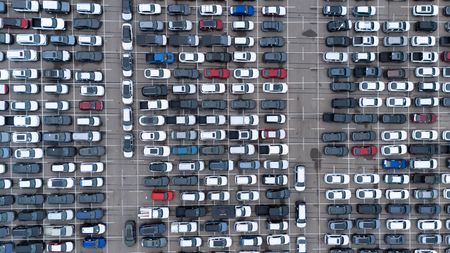By Aislinn Laing
MADRID (Reuters) – Monday’s huge outage delivered Spaniards and Portuguese a stark reminder of how dependent on power they are in their modern lives, and how in an instant they can find themselves
incapacitated.
The power failure at around midday that lasted eight hours saw some people trapped in lifts, while others had to trudge down multiple flights of stairs in the darkness with only their mobile phones for light.
Metros and trains ground to a halt, leaving people either sealed in carriages by electric doors for hours, or forced to jump down, pick their way over tracks, and walk to nearby towns.
Puerto Rican tourist Ana Cordero spent three hours at a standstill on a train headed for Barcelona before being evacuated. Apart from a message on the train tannoy about a blackout, she could access no information about what happened.
Staff opened the toilets for people but then the train’s battery died, she said.
“It’s so stupid because everything was electronic. Even to wash your hands, you had to press a button and it wasn’t working,” Cordero said.
Phone and internet signals came and went before dropping entirely as people tried to reach loved ones or their children’s schools.
Those desperate for news turned to car or analogue radios if they still had them – unable to receive news through their phones or websites.
Anyone managing to take to the roads in cities was swiftly mired in gridlock with traffic lights out of order, or they struggled to navigate without mapping apps to guide them.
But not everyone could get to their cars, however, as many were sealed in garages by electric gates or doors.
NO CASH? NO CHANCE
Those turning to taxis were either turned away if they didn’t have cash or had to barter to pay later as electronic payment systems and ride sharing apps went down and cash machines were out of order.
Many large supermarkets closed with no ability to take payments, while other stores quickly ran out of basic provisions such as bread, milk and water.
“It kind of makes you realize how much we depend on electricity and technology, just basic connections, how integral it is to our day-to-day life,” said 26-year-old engineer Albert Fernandez, who was among a crowd outside a Barcelona electronics store, trying to use its wifi.
Tourists and locals found that if they had electronic locks on their lodging doors, they could not get in. Video footage showed visitors being checked into a guesthouse in Ronda, southern Spain, by torchlight.
Bar, restaurant and food store owners fretted about the cost of perished products in inactive fridges and freezers. Those that could opened to customers, taking cash only, while others closed down.
Among the hardest hit were people dependent on home medical units such as oxygen concentrators with finite backup power supplies, and those using mobility devices such as wheelchairs.
Lola Diaz Fernandez, 58, was stranded in Valencia train station when her train back to Madrid was delayed. She and others with mobility challenges were allowed to stay in the station overnight.
“For me to be seated for so many hours means problems like inflammation in my legs,” she said. “Thankfully I could stay here as there are adapted toilets. I guess it’ll take a few days for me to recover.”
Reuters deputy bureau chief Andrei Khalip in Lisbon, who uses a wheelchair, was without power for 11 hours and trapped in his flat with the lift out of order.
“As I kept checking the signal on my phone in vain, the feeling of being unable to work and the realisation of just how dependent we are on power and communications networks was the worst part,” he said.
A DAY OFF
For many Spaniards though, an unexpected afternoon off work and study brought opportunity for more enjoyment of the things the nation is known for: sunlit squares, drinks on terraces, games and communing with neighbours in impromptu street parties.
When power was restored, friends shared pictures on social media of their return to board games like Scrabble without the easy distraction of mobile phones, and family suppers cooked on gas stoves and eaten by candlelight.
Some posted that the blackout showed the need for emergency supplies that the European Union has said citizens should stockpile if natural disasters, cyber attacks and geopolitical crises strike.
And as the lights twinkled on across Madrid at nightfall, citizens whooped and cheered with relief.
(Reporting by Iberia bureau, writing by Aislinn Laing; editing by Alexandra Hudson)










